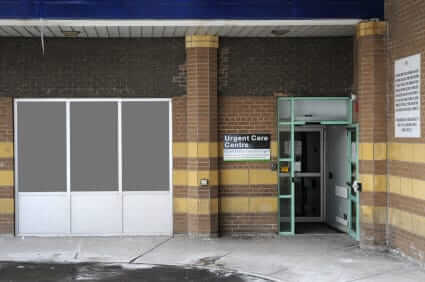Urgent Care Centers are a rapidly expanding part of America’s health care equation. The first Urgent Care Center popped up in the US in the 1970’s and since then, have become widely popular all over the country. With more than 10,000 domestic Urgent Care/Walk In Clinics, patients have a simpler, more accessible venue for their unscheduled health and semi urgent needs. Urgent care clinics are not typically hard to find. Many of them are free standing buildings on busy roads or highly populated areas. There are also many urgent care clinics now available in strip malls.
Due to the market’s demand for easily accessible unscheduled health care, the first centers were formed by emergency room physicians who recognized a niche’ that otherwise had yet to be filled in the healthcare market. Many patients experience long waits and high costs at hospital emergency rooms. Without the overhead expenses associated with a hospital’s emergency room, urgent care centers offered more than increased availability but also savings to patients. Most urgent care centers will have significantly less co-pays than patients will experience at a hospital emergency room and accept most or all of the major health care insurance carriers including Medicare. Unlike their hospital counterparts, Urgent Care Centers generally do not operate on a 24 hour a day basis (however many operate 7 days per week). Traditionally they will have standard business operating hours. Most urgent care centers are open 12 hours per day. In addition to that Urgent Care Centers also offer the following services:
- Accept walk-in patients suffering from a number of different ailments
- Offer radiology services (mostly digital X-Ray and ultrasound)
- On-site blood work
- In house minor surgeries
- Able to administer IV’s and other fluids
- Cast broken bones
- Laceration repairs (stitches)
- Mole and wart removals
- Treat respiratory infections
- Flu Shots
- Vaccinations
- Animal bites/poison
- Ear Infections
Additionally, Urgent Care Centers are staffed with American Board Certified physicians and assisting medical staff to perform a myriad of procedures requiring timely response. While an Urgent Care Center is a great and valuable resource for patients, major life threatening emergencies should still be directed to a traditional Emergency Room. Most Urgent Care Clinics have nurse practitioners and physician assistants on staff to help with minor health care needs.
In regards to medical malpractice insurance for urgent care centers, many medical liability insurance carriers offer policies that are designed specifically for urgent care clinics. Many physicians are under the false assumption that if they have a policy in place for family practice, that they will be covered properly to work at an urgent care clinic. Many physician malpractice insurance companies have urgent care as a specialty that is one class higher (in terms of risk) than family practice and internal medicine. Therefore a typical family practice or internal medicine policy will not cover all of the aspects of urgent care. It is also important to be assured that all of the staff members that are proving health care services, including doctors, nurse practitioners, physician assistants, registered nurses, medical assistants, and medical techs are all covered properly under the medical malpractice insurance policy. In addition it is just as important to be sure that the corporation is covered properly. All urgent care clinics are incorporated as a business. Whether it is an LLC, PLLC, PC etc, the corporation needs to be covered in the event a medical malpractice claim is filed. Good coverage is available from “A” rated companies for urgent care clinics that have policies designed to cover all aspects of the urgent care center risk.




